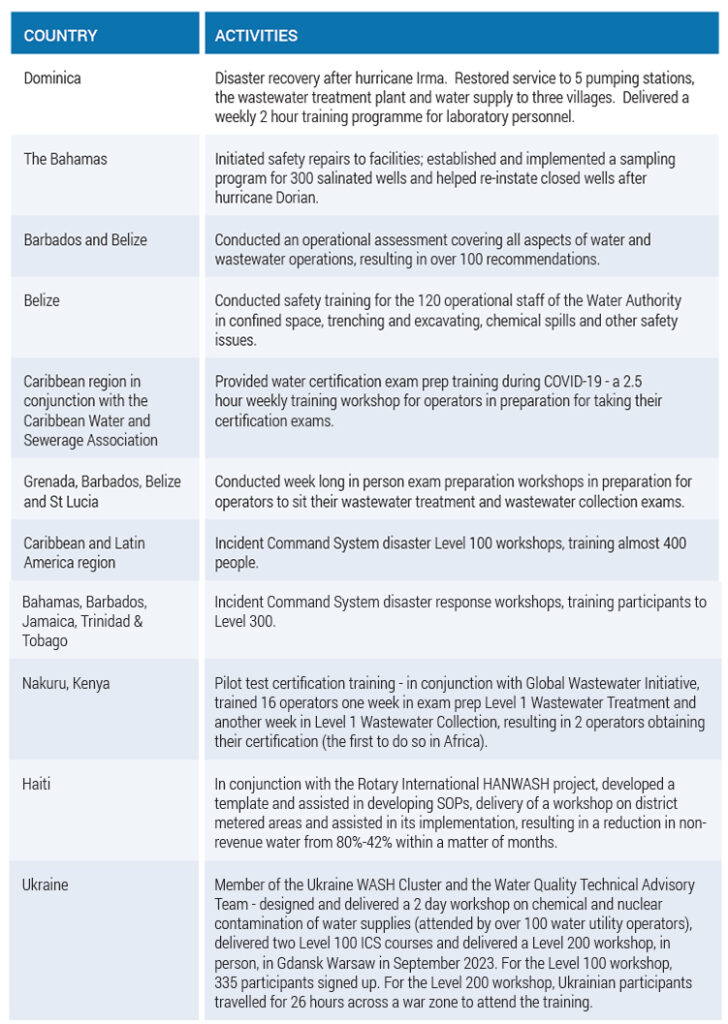Operators Without Borders AUSTRALIA: Supporting Improved Wash Outcomes In The Asia-Pacific
There is an urgent need to improve access to water and sanitation in developing nations across the globe, including rapid disaster recovery and building stronger local resilience to climate change. To fully achieve the United Nations Sustainable Development Goal 6 (SDG6: ensure availability and sustainable management of water and sanitation for all) by 2030, a fourfold increase in pace is required.
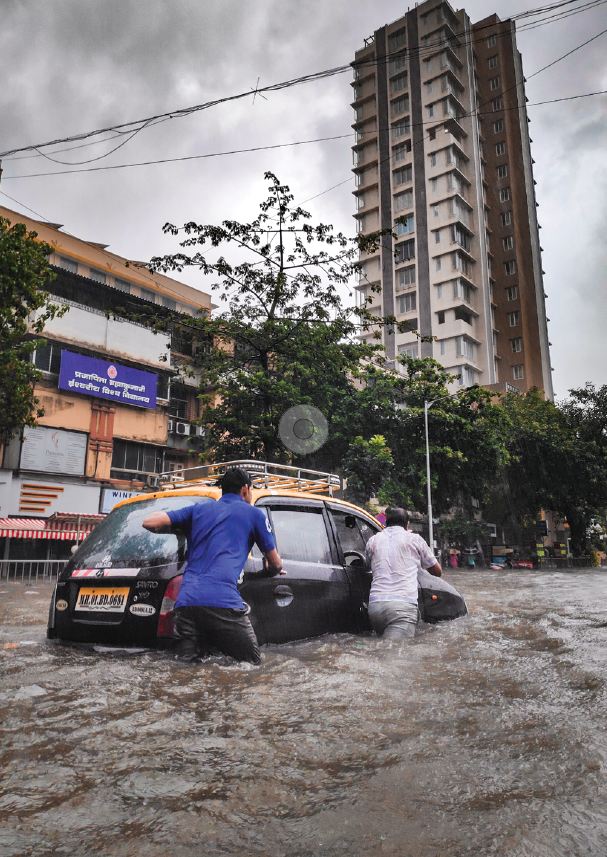 To address this critical target, various government, not-for-profit and industry organisations are investing heavily in improved infrastructure, technology and practice across the water cycle. This has begun to result in better access to clean drinking water, sanitation and hygiene, delivering critical community health and environmental outcomes.
To address this critical target, various government, not-for-profit and industry organisations are investing heavily in improved infrastructure, technology and practice across the water cycle. This has begun to result in better access to clean drinking water, sanitation and hygiene, delivering critical community health and environmental outcomes.
Across the Asia-Pacific, rapid gains in access to water, sanitation and hygiene (WASH) have been achieved over the last decade. Yet, 500 million individuals still lack access to basic water supplies in the region, while 1.14 billion lack access to basic sanitation.
Australia is a trusted water partner across the Asia-Pacific region. There are a range of programs already in place that provide pathways for our water sector to play an active role in the delivery of SDG 6 in the region.
The upgrading of infrastructure is an essential foundation for improving WASH outcomes, but to fully realise these benefits, the capacity of utilities to best use this infrastructure is vital. In addition, capacity to respond to emergency situations and to restore water and wastewater infrastructure as quickly as possible is also required. These are two areas where the international water community can play a significant supporting role.
To complement existing initiatives, Operators Without Borders, a not-for-profit registered charity formed in Canada, is seeking to develop a presence in Australia (Operators Without Borders Australia, or OWB Australia) to work with local partners to deliver certified training to water and wastewater system operators and to assist mobilise technical resources to quickly respond to disaster situations in developing countries across the Asia-Pacific as they arise.
Half of the world’s population still does not have access to adequate WASH services and infrastructure. In 2019, this gap was responsible for at least 1.4 million preventable deaths.
This information has been prepared to help engage with and leverage support from the Australian water sector in the formation of Operators Without Borders Australia.
Drivers and Need
Half of the world’s population still does not have access to adequate WASH services and infrastructure. In 2019, this gap was responsible for at least 1.4 million preventable deaths.
Water is a critical element across most of the 17 United Nations Sustainable Development Goals. Goal 6 specifically focuses on water access, sanitation and hygiene, aiming to achieve the following by 2030:
- Universal and equitable access to safe and affordable drinking water for all;
- Access to adequate and equitable sanitation and hygiene for all and an end to open defecation, paying special attention to the needs of women and girls and those in vulnerable situations;
- Improved water quality by reducing pollution, eliminating dumping and minimising release of hazardous chemicals and materials, halving the proportion of untreated wastewater and substantially increasing recycling and safe reuse globally;
- A substantial increase in water-use efficiency across all sectors and sustainable withdrawals and supply of freshwater to address water scarcity and substantially reduce the number of people suffering from water scarcity;
- Implementation of integrated water resources management at all levels, including through transboundary cooperation as appropriate;
- Protection and restoration of water-related ecosystems, including mountains, forests, wetlands, rivers, aquifers and lakes;
- Expanded international cooperation and capacity-building support to developing countries in water and sanitation-related activities and programs, including water harvesting, desalination, water efficiency, wastewater treatment, recycling and reuse technologies;
- Support for and strengthened participation of local communities in improving water and sanitation management.
Measured progress against SDG 6 highlights more needs to be done by governments, institutions and industry if the targets are to be met by 2030. It is estimated that between US$30 billion to US$1.1 trillion per year needs to be invested in essential infrastructure, educational programs, targeted support and capacity development initiatives.
Within this, capacity development is considered essential for supporting the financing, service delivery, innovation and the data management needed for sustainable and equitable WASH services.
It has been noted by the UN that professional water associations can play a significant role in this space, by:
- Developing and implementing regular capacity development programs;
- Creating national training institutions;
- Establishing standards, regulations and professional certification.
The most recent assessment of progress against the Sustainable Development Goals in the Asia-Pacific (Asia and the Pacific SDG Progress Report 2022 – Widening disparities amid COVID-19) noted that:
Despite a substantial increase in aid to the lowest developed countries for water supply and sanitation, the region must take action to reverse negative trends on water use efficiency and the protection and restoration of water-related ecosystems. A large population still lacks access to safely managed drinking water services and basic handwashing facilities, especially in rural areas. Progress towards those targets is too slow to achieve Goal 6 by 2030.
The primary issues affecting the achievement of this target are:
- Poor governance for water systems and programs;
- Significant funding gaps requiring additional private sector participation and investment;
- Public funding programs prioritising short-term economic and agricultural growth at the expense of environmental and social sustainability;
- Rapid urbanisation, requiring more efficient and resilient water and WASH infrastructure, including the use of new innovative and technical solutions.
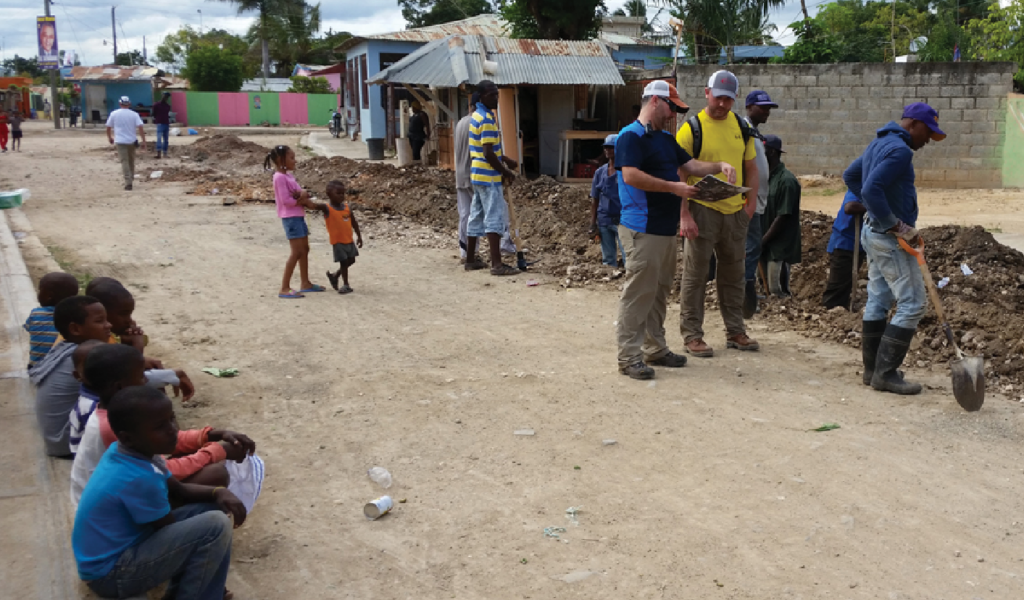
Water, including water resource management, WASH and gender equality, disability and social inclusion are key development priorities across the Asia-Pacific. Accordingly, there are a range of existing programs led out of Australia targeting the achievement of SDG 6 in the region.
Operators Without Borders is a unique model and is possibly the only charity of its kind that, whilst still being in the WASH community, serves to assist water utilities in developing countries respond to disasters, as well as delivering free operational and technical capacity building initiatives.
Given the scale of the challenge ahead, Operators Without Borders Australia can add value to existing initiatives across the Asia-Pacific.
The Operators Without Borders Model
Operators Without Borders is a not-for-profit registered charity established in Canada that focuses on building the capacity and skills of water and wastewater system operators and providing emergency response support for water utilities in developing nations.
In the capacity development space, OWB assists by delivering operator certification training, or specific training on aspects of utility operations. Senior personal can also assess how facilities and networks are being run and suggest improvements.
In an emergency response, OWB provides access to certified, volunteer water and wastewater operators and other trained professionals who can support utilities following emergency and disaster situations to ensure safe drinking water and wastewater management services are resumed as quickly as possible. This can also include formal Incident Command Systems training in countries where necessary.
Operators Without Borders volunteers have delivered over $1.5M CAD worth of volunteer hours.
This model has been extremely successful in supporting improved water and wastewater services in different parts of the world, as detailed in Table 1.
Table 1 – Operators Without Borders Initiatives
Operators Without Borders Australia
It is well recognised more international collaboration is required to address water and WASH issues and access in the Asia-Pacific. Given the experience of the OWB model to date, the formation of Operators Without Borders Australia would deliver additional impact alongside other existing efforts to improve WASH in the region.
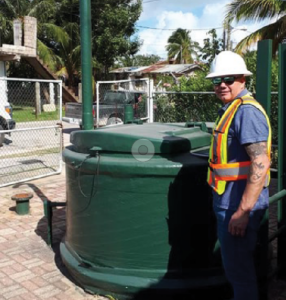 The primary objectives for establishing Operators Without Borders Australia with a focus on the Asia-Pacific, are to:
The primary objectives for establishing Operators Without Borders Australia with a focus on the Asia-Pacific, are to:
- Leverage and build on Australia’s reputation and capabilities in water to drive sustainable and effective water and wastewater services in the region;
- Further build and enhance the skills of water and wastewater operators in Australia through their engagement in overseas professional development;
- Enable improved international collaboration in water and add value to existing initiatives in the region;
- Build and strengthen the capacity within developed countries in the region to underpin future water and wastewater services;
- Ensure the skills base in developing countries in the region are able to adopt new innovations and infrastructure improvements in an accelerated and targeted manner;
- Be recognised as part of a larger global-focused set of initiatives on the essential SDG 6, benefitting from this scale of knowledge exchange and capacity strengthening, delivering improved environmental sustainability and local resilience.
How to Get Involved?
This information has been prepared to help engage with and leverage support from the local water and wastewater sector to establish Operators Without Borders Australia as a complementary entity focussed on water and wastewater capacity development in the Asia-Pacific and to respond to water related impacts from disaster and emergency situations.
A staged approach to the establishment of Operators Without Borders Australia is being pursued and we are keen to establish partnerships and collaborations across Australia through this process.
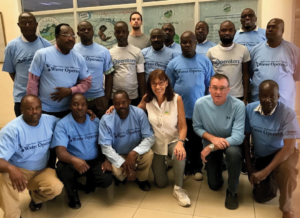 We would welcome the opportunity to talk to your organisation further about how you could be involved.
We would welcome the opportunity to talk to your organisation further about how you could be involved.
Your participation could include one or all of the following:
- Promotion and awareness raising;
- Financial and in-kind support;
- Training package development;
- Access to staff for training delivery;
- Involvement in the initial management board.
To register your interest and schedule an initial discussion on partnership opportunities, please email Operators Without Borders Australia local contact, Mr Steve Morton, on h2orizonsconsultancy@gmail.com

